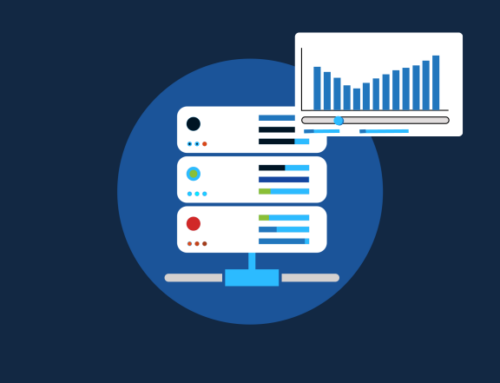Whether you’re a large or small Internet Service Provider, your company’s underlying goal is to grow. While expanding into new markets can be an effective way to leverage your core business for growth, before jumping in, there are many things to consider.
Like any other business endeavor, expansion can be risky; therefore, it is vital to thoroughly explore opportunities to ensure you have the right tools to succeed without getting in over your head.
In today’s hyper-connected world, consumers expect high-quality broadband, but they also want choices, and rightfully so. With one in three Americans living in a multi-dwelling environment, from condominiums to student housing, it would appear that the Multi-Dwelling Unit (MDU) vertical could potentially be a gold mine as a broadband provider.
However, the Multi-Dwelling Unit (MDU) space has a shady past when it comes to playing fair. Despite the Federal Communications Commission (FCC) banning landlords from entering exclusive service agreements with Internet Service Providers in 2008, dominant telecom companies exploited loopholes to benefit themselves while eliminating potential competition, leaving the consumer with little to no options regardless of quality or service cost.
Fast forward to February 2022, the FCC unanimously voted to ban dominant telecom companies from entering into certain revenue-sharing agreements with landlords that keep competing ISPs from serving a building’s tenants. The rules also force broadband providers to disclose any exclusive marketing arrangements they have with landlords to people residing in their buildings.
What does this mean for your ISP?
Opportunity knocks, and it could be knocking on many doors. The recent ruling means that consumers will have the chance to enter into agreements with an Internet Service Provider of their choice versus those lining the landlord’s pockets.
What does this mean for subscribers?
With consumers having a multitude of personal devices that perform an array of bandwidth-consuming online activities, the demand for fast and reliable internet has never been greater. Now subscribers will be able to have broadband options that best fit their unique needs.
The recent ruling from the FCC will allow for more competition in the Multi-Dwelling Unit (MDU) space, giving subscribers more options and broadband providers endless opportunities to expand their business while leveraging existing infrastructure.
It is an exciting time for Internet Service Providers looking to explore new revenue streams and an equally exciting time for Sonar to help our customers reach new heights.
Watch the five-part MDU video series below if you are ready to explore how Sonar helps Internet Service Providers leverage automation and existing infrastructure in Multi-Dwelling Unit (MDU) space.
Account Management
The first video of our MDU series focuses on the Account Management portion of your MDU business. In Sonar, address information can be entered without immediately being associated to a customer account; this allows you to pre-configure the addresses you service and populate the customer information as they move in. The video below details the two methods this can be done via, along with additional benefits of managing your customer accounts with Sonar.
Service Management
Service Management is an important part of managing a Multi-Dwelling Unit. With Sonar’s range of billing features, including automation and customizable services, you’re able to streamline the entire process from start to finish. We take a look at configuring services and their pricing model, along with the process of creating scheduled events which will allow you to automate processes such as adding and removing packages or services at a future date.
Network Provisioning & Uptime Tracking
Just as significant as Account and Service Management is the ability to reliably and efficiently manage your network. In this video, we dig into how Sonar can play a role in your network provisioning, whether you’re just getting started or you’ve got a full-fledged network already operational. We shine a spotlight on configuring and monitoring service reliability, tracking service usage, and the ability to automate data suspension due to unpaid invoices.
Inventory Creation, Tracking, Robustness
Our next video focuses on Sonar’s flexible and scalable inventory system. A common hurdle in the ISP industry is having to manage a separate inventory system, which can lead to blind spots in inventory use for those with limited access to both platforms. With Sonar, you’re able to enhance your inventory management and make the organization that much easier. Our inventory system provides full customization that enables you to track the inventory location down to the field technician’s truck it’s currently assigned to, or even the shelf it can be found on, along with choosing which details you wish to track such as the MAC address, serial number or even IMSI. Furthermore, you’re able to broaden what you track, whether it be from network equipment through to furniture.
Additional Features Creating More Efficiencies For Your MDU
The final video of our MDU series provides an overview of additional features that can provide even more benefits to your MDU business. In it, we touch on the following:
- With API functionality available, you’re able to extract or alter information from your instance without ever having to touch our interface, all via our GraphQL API. And with the use of our extensive documentation, you can easily discover how the API works with Sonar, no matter if you’re just getting started or are already well versed.
- Our scheduling interface provides total flexibility and customization; you’re able to create jobs, adjust their expected length, and send an automated appointment email, all within a few clicks. Taking this a step further, during the configuration of your job types, you can assign a custom list of tasks which would autopopulate upon job creation. These tasks would provide an added layer of quality control by acting as a guideline for your field technicians.
- Sonar’s ticketing system enables you to track all communication with your tenants and your clients in an organized location. You’re able to curate who will initially interact with a ticket by configuring ticket groups based on the email address used. Furthermore, tickets can be easily redirected between teams as needed, or even used to create a job if the communication prompts the need for a direct visit.
- Lastly, Sonar integrates with several payment providers, making it easy to take payments for any services you offer. And with the use of our customer portal, your tenants and clients are able to view any invoiced transactions, process payments and manage their payment methods all at the touch of their fingertips. Finally, with customizable billing settings, you’re able to automate what happens to an account and its fees should an invoice go unpaid.
Sonar uses intelligent automatic provisioning making managing MDUs quicker, easier, and more cost-effective than ever before. Learn more by visiting our website https://sonar.software/mdu




